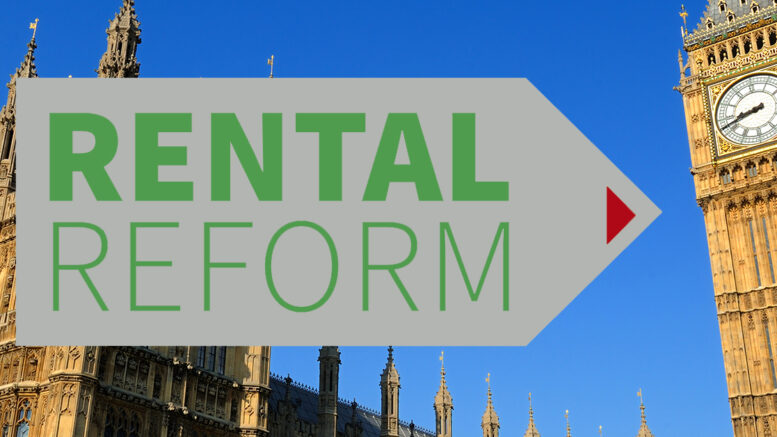The long-debated Renters’ Rights Act has officially received Royal Assent from King Charles this afternoon, ushering in one of the largest shake-ups to England’s private rented sector in nearly forty years. The new law will abolish Section 21 evictions, bring in open-ended tenancies, and impose stricter property standards - marking a fundamental shift in how landlords operate and manage risk.
Section 21 ban confirmed as timetable awaited
After years of debate under successive governments, the Renters’ Rights Act is finally on the statute books. Labour’s version, closely modelled on Michael Gove’s original Renters’ Reform Bill, has moved rapidly through Parliament thanks to the party’s large majority.
Housing Secretary Steve Reed confirmed this morning on BBC Radio 4’s Today programme that a formal timetable for implementation will be published “as soon as possible,” giving landlords and agents clarity on when each element of the law will take effect.
The abolition of Section 21 “no fault” evictions will not be immediate - despite pressure from campaigners such as Shelter and Generation Rent - as courts and property managers need time to adjust. County Courts, in particular, are still unprepared for the rise in possession cases, with landlords warning of significant delays and higher costs.
The Act also introduces a national landlord register, a private rental ombudsman, and extends Awaab’s Law to private housing, requiring landlords to address reported hazards such as damp and mould within strict deadlines. The Government says further secondary legislation will be rolled out to guide implementation.
Compliance pressure mounts on landlords and letting agents
The changes will phase in over time, with the Decent Homes Standard set to apply to private rentals and new rent increase limits expected to follow. For smaller landlords - many of whom manage properties part-time - the shift could mean a steep learning curve and a growing reliance on letting agents for compliance.
Dr Neil Cobbold, Commercial Director at Reapit, said the sector finally has “clarity on what will change,” but warned that the scale of reform would demand far greater professional support:
“Only 4% of landlords are full-time and around 45% own just one rental property. They’ll need professional help from agents more than ever to adapt to the biggest change in decades.”
He noted that several provisions, including the landlord portal and ombudsman system, will be phased in gradually, with some not expected to take effect until the mid-2030s - a delay that gives the sector time to prepare.
In London, Marc von Grundherr, Director at Benham and Reeves, welcomed the end of uncertainty but warned that “a new chapter of compliance and complexity” now begins:
“Many landlords will be wary of further administrative burden and reduced flexibility, but at least they can now plan accordingly. Once the dust settles, confidence should start to return.”
Industry calls for fairness, realism, and stability
Ben Beadle, Chief Executive of the National Residential Landlords Association (NRLA), said the Act “marks an important milestone” but called for at least six months’ notice before implementation begins:
“This is the most significant shake-up of the rental market in almost 40 years. The new systems must work for both tenants and responsible landlords.”
He urged ministers to ensure reforms “don’t worsen the supply crisis by discouraging long-term investment” and to commit to “ongoing monitoring of the Act’s impact.”
Other industry figures echoed the need for balance. Sián Hemming-Metcalfe, Operations Director at Inventory Base, said the sector is moving “from debate to delivery” but warned that constant legislative change only fuels uncertainty:
“The Government must resist the temptation to keep moving the goalposts. The private rented sector is essential to housing supply, and responsible landlords should be supported, not penalised.”
Meanwhile, Sam Humphreys, Head of M&A at Dwelly, said many landlords are already operating to high standards:
“For landlords, this may feel like another hurdle, but most are already compliant. The focus now must shift to helping landlords understand their new obligations and easing the administrative load that follows.”
Editor’s view
The Renters’ Rights Act closes a turbulent chapter of policy drift but opens a far more complex one for landlords. While the abolition of Section 21 has long been expected, the combined weight of new databases, ombudsman oversight, and property standards will add significant operational costs. If not managed with care, the legislation risks deepening the rental supply crunch - the very issue it claims to fix. The coming months will test whether this government can deliver reform without driving investors away from the private rented sector entirely.
Author: Editorial team - UK landlord & buy-to-let news, policy, and finance.
Published: 27 October 2025
Sources: UK Parliament, BBC Radio 4 Today programme, NRLA, Reapit, Benham and Reeves, Inventory Base, Dwelly.
Related reading: Renters’ Rights Bill passes final vote as landlords brace for sweeping reforms








